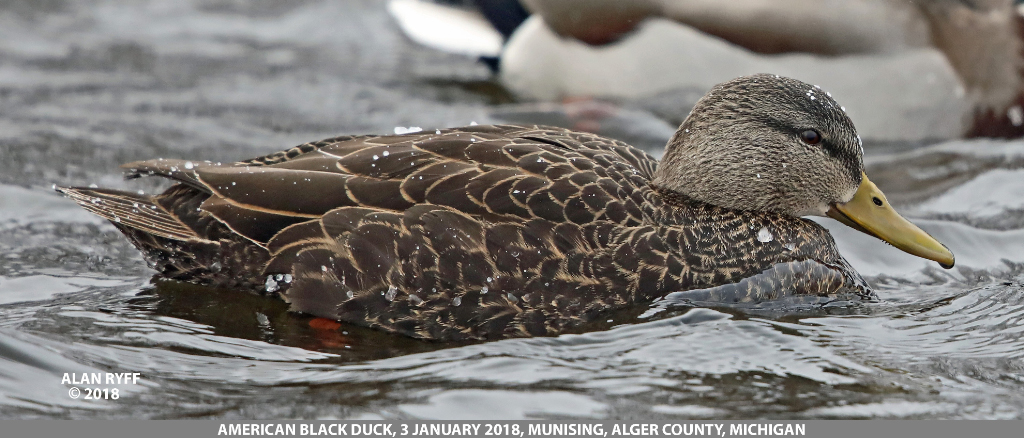
[ad_1]
A research of 16 frequent duck species that winter within the Southeastern U.S. that was carried out by the National Audubon Society and Clemson University’s James C. Kennedy Waterfowl and Wetlands Conservation Center exhibits that populations have shifted northward over the previous 50 years resulting from temperature adjustments attributed to local weather warming.
The research, revealed within the Journal of Wildlife Management, is predicated on knowledge collected throughout Audubon’s annual Christmas Bird Count (CBC) from 1969-2019. The CBC contains each novice birders and scientists reporting on native chook populations every December and January.
“We’ve suspected that warming temperatures are altering the kinds of waterfowl that we’re seeing in several areas, and these knowledge verify that,” mentioned Dr. Tim Meehan, quantitative ecologist on the National Audubon Society and the lead creator of the publication. “The climate has stopped changing into extreme sufficient within the winter to immediate the birds to fly south. They’re staying farther north, and so they’re telling us that one thing elementary has modified of their surroundings.”

American Black Duck, copyright Alan Ryff, from the surfbirds galleries
The knowledge present that whereas there wasn’t a significant change in populations general, there have been noticeable adjustments in abundances in places that corresponded with warming temperatures. For instance, the American Black Duck – a species just like the Mallard with darker coloring and a particular flare of purple on its wing — confirmed a steady degree of abundance general, however a marked enhance in presence in historically colder northern places, and a discount in historically hotter areas.
The findings have repercussions for each geese and other people.
“With elevated numbers of dabbling and diving geese wintering extra northerly now, scientists and conservation companions ought to decide if winter meals availability at extra northern latitudes is ample to help elevated numbers of wintering geese with local weather warming” mentioned Dr. Richard Kaminski, director of the Kennedy Center at Clemson University. “Local economies in conventional southern wintering areas for geese could also be impacted by decreased numbers of visiting hunters and birders, as these conservationists go elsewhere to hunt or birdwatch.”
The lower of sure waterfowl and different waterbird species is a significant challenge for communities that rely on birdwatching and waterfowl searching, actions that generate billions of {dollars} yearly nationwide. Southern duck hunters have already noticed notable adjustments within the numbers of sure birds that they see.
Underlying the findings of this research is the position of neighborhood science in documenting the consequences of a altering local weather. The Christmas Bird Count is the longest-running neighborhood science chook mission worldwide. Started on Christmas Day 1900, the depend engages volunteer observers to depend birds of their space, and report again to Audubon. The findings inform Audubon’s science for the remainder of the yr, and much past. This research referenced 50 years’ price of CBC knowledge, beginning in 1969.
“It’s a testomony to the ability that anybody could make an actual distinction in scientific statement,” mentioned Dr. Brooke Bateman, director of local weather science on the National Audubon Society. “People might not have identified what local weather change was in 1969 after they went out on Christmas Day to report the birds they noticed, however their studies are serving to us unravel one of the urgent international problems with the 21st Century.”
The findings additionally underscore the analysis carried out by Audubon in its 2019 local weather science report Survival By Degrees, which discovered that growing international temperatures at present charges will place two-thirds of North American chook species prone to extinction.
“Time and once more science is displaying that there are penalties to ignoring local weather change,” mentioned David Yarnold, CEO of the National Audubon Society. “Sometimes it’s the sentimental lack of now not seeing the birds you already know in your personal yard, generally it’s hurt to an trade like tourism or out of doors recreation, and generally it’s a bigger trigger for concern in regards to the locations that each geese and other people have to survive. Birds are telling us that the adjustments are already right here. The query is are we ready to react and resolve.”
The research could be discovered at: https://wildlife.onlinelibrary.wiley.com/doi/10.1002/jwmg.22023
Source www.surfbirds.com






